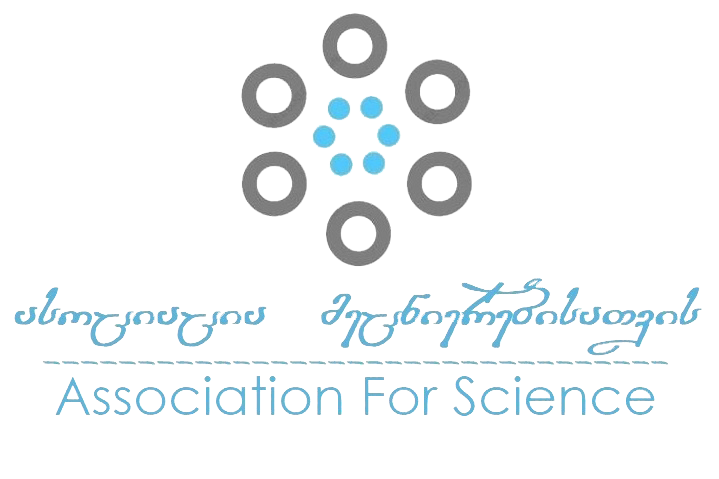ადიქცია, როგორც ილუზორულ-კომპენ¬სა¬ტო¬¬¬რული ქცევა
DOI:
https://doi.org/10.52340/sou.2023.19.49საკვანძო სიტყვები:
ადიქციური ქცევა, ფსიქოლოგიური დაცვის მექანიზმები, მოტივაციურღირებულებითი სფერო, ცხოვრების საზრისიანოტაცია
ნარკომანიის წარმოქმნასა და დინამიკაში ფსიქოლოგიური ფაქტორების როლი საყოველთაოდ აღიარებულია: ადიქციის წარმოქმნა განიხილება, როგორც რეაქცია გაუსაძლის შინაგან მდგომარეობაზე, რომლის ძირითადი მახასიათებელია ინტენსიური ნეგატიური აფექტი. მაშასადამე, ადიქცია ფსიქოლოგიური თუ ცხოვრებისეული პრობლემების მოგვარების მცდელობაა, ანუ ნეგატიურ აფექტთა დაძლევის, ემოციური თვითრეგულაციის თვითგანადგურებელი ხერხი. კვლევის მიზანი იყო წამალდამოკიდებულ პირთა ცხოვრების ორინტირების, ფსიქოლოგიური დაცვის მექანიზმების სისტემისა და პიროვნული პროფილის ემპირიული შესწავლა. ცხოვრების ორინტირების შესასწავლად გამოყენებულ იქნა კრამბო-მაჰოლიკის ტესტი, ფსიქოლოგიური დაცვის მექანიზმების საკვლევად – კელერმან-პლუტჩიკის ტესტი, ხოლო პიროვნული პროფილის შესადგენად – კეტელის 16-ფაქტორიანი ტესტის C ფორმა. სულ გამოკითხულ იქნა 135 პირი, მათ შორის 35 ნარკოდამოკიდებული. კვლევა ორ ეტაპად ჩატარდა: პირველ ეტაპზე ჩატარდა დაცვის მექანიზმების საკვლევი ტესტის ადაპტაცია, ხოლო მეორე ეტაპზე – ძირითადი ემპირიული კვლევა. დადგენილია, რომ ადიქტს ახასიათებს მოტივაციურ-ღირებულებითი სფეროს დეფორმაცია, რაც გულისხმობს ინტერესების, ცხოვრების მიზნების, სასიცოცხლო სივრცისა და ცხოვრების საზრისის შევიწროებას, საკუთარი თავითა და ცხოვრებით უკმაყოფილებას. ფსიქოლოგიური დაცვის მექანიზმები, რომელიც ონტოგენეზში ვითარდება, როგორც ადაპტაციისა და შინაგანი კონფლიქტების გადაწყვეტის საშუალება, ადიქციის შემთხვევაში განაპირობებს საპირისპირო მდგომარეობას – დეზადაპტაციას. ფსიქოლოგიური დაცვის სტრუქტურის დეფორმაცია უზრუნველყოფს რეალობის ბლოკირების მძლავრ ხერხებს: მკვეთრად ქვეითდება საკუთარი დაავადების კრიტიკული შეფასების უნარი. ფსიქოლოგიური დაცვის სისტემა ნარკოდამოკიდებულს საშუალებას არ აძლევს სათანადოდ გააცნობიეროს ნარკოტიკის მოხმარების შედეგების სიმძიმე, რაც, თავის მხრივ, ხელს უწყობს პიროვნების დეფორმაციისა და ქცევის პათოლოგიურ ფორმების გაღრმავებას.შედგენილია ნარკოდამოკიდებულთა პიროვნული პროფილი. ჯანმრთელთან შედარებით ადიქტი არის ემოციურად უფრო არასტაბილური, უფრო წინდაუხედავი, უდარდელი, უფრო ხისტი, ნაკლებად პრაქტიკული, ახასიათებს უფრო პრიმიტიული მსოფლმხედველობა, ინტელექტუალური ინტერესების შევიწროება, უფრო დაბალი თვითკონტროლი, სუსტი ნებელობითი რეგულაცია, დაბალი თვითდისციპლინა, იმპულსურობა, აფექტურობა. დადგენილია ადიქტთა რეაბილიტაციის პროგრამის ფარგლებში ჩატარებული ფსიქოთერაპიის ეფექტურობის შეფასების პრედიქტორები.
წყაროები
Beck (1979) Beck Aaon. Rush John, Shaw Brian, Emery Gary. Cognitive therapy of depression. New York: Guilford Press, 1979;
Crumbaugh (1969) Crumbaugh James, Maholick Leonard. Manual of instructions for the Purpose-in-Life Test. Munster: Psychometric Affiliates. 1969.
Ellis (2002) Ellis Albert, Dryden Windy. Practice rational-emotional behavioral therapy. St. Petersburg: Rech. 2002.
Plutchik, Kellerman (1980) Plutchik Robert, Kellerman Henry. (Eds.).. Emotion: Theory, research, and experience. Vol. 1. Theories of emotion. New York: Academic Press. 1980.
Waisberg (1994) Waisberg Jodie. Purpose in life and outcome of treatment for alcohol dependence. British Journal of Clinical Psychology, 33(1), 1994.
Винникова (2004) Винникова Мария. Ремиссия героиновой зависимости (клиника, этапы течения; профилактика рецидивов). Диссертация на соискание ученой степени доктора медицинских наук. Москва 2004.
Зенцова (2015) Зенцова Наталья. Системная модель психологического этапа реабилитации больных наркоманией. Диссертация на соискание ученой степени доктора психологических наук. Москва, 2015.
Короленко, Дмитриева (2012) Короленко Цезарь, Дмитриева Нина. Аддиктология. Новосибирск. Издательство: Институт консультирования и системных решений, 2012.
Соловова (2009) Соловова Надежда. Выраженность механизмов психологической защиты как предиктор успешности реабилитации нар¬ко¬зависимых//Психологический журнал. 2009.
Франкл (1990) Франкл Виктор. Человек в поисках смысла. Москва. Издательство: Прогресс. 1990.



